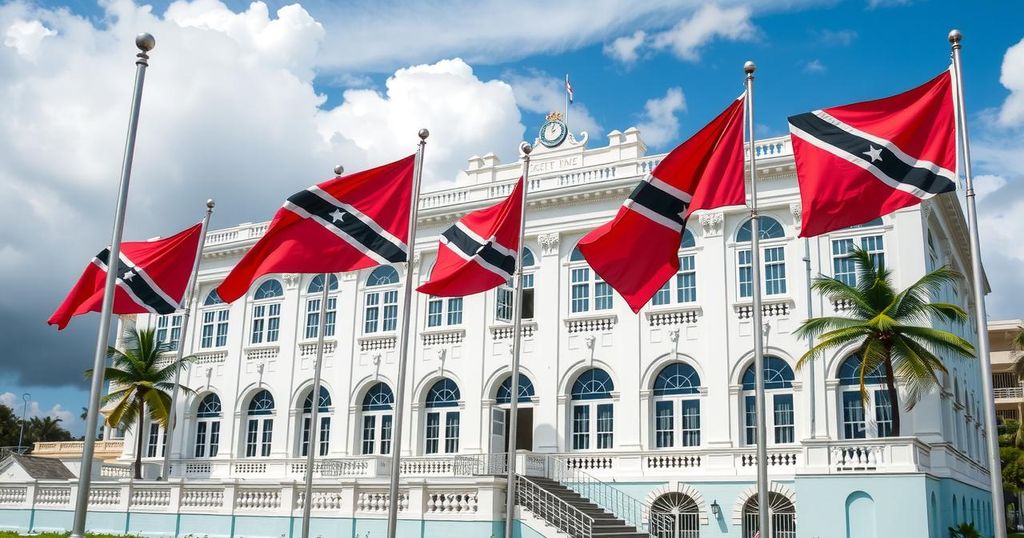Prime Minister Keith Rowley denies claims that Trinidad and Tobago has allowed U.S. military deployment for potential conflicts in Venezuela, emphasizing the country’s commitment to peace and sovereignty, and clarifying that recent agreements focus on security cooperation.
On Thursday, Prime Minister Keith Rowley of Trinidad and Tobago strongly refuted claims made in a newspaper article suggesting that his government had permitted the United States to station troops in the country in anticipation of potential conflict in Venezuela. Emphasizing the gravity of such assertions, Rowley asserted, “This is a serious matter. If a country is making its territory available for another country to stage military action against that country, that is a serious matter.” He expressed concern over the misinformation, highlighting that Trinidad and Tobago consistently maintains a stance of non-interference in the internal affairs of other nations, prioritizing peace in the Caribbean region.
The article in question referenced agreements signed by National Security Minister Fitzgerald Hinds with U.S. officials on December 10, some of which reportedly allow the deployment of U.S. military forces in Trinidad and Tobago. However, Rowley clarified that these agreements stem from routine discussions on security, energy, and human rights cooperation, rather than active military engagement. He stressed, “None of that has anything to do with any potential for the placement of United States troops in Trinidad and Tobago.”
In his remarks, Rowley called the publication of the article disturbing, aiming to dispel any possible misunderstandings or fears that could arise from such inaccurate reporting. He firmly denounced the article’s conclusions, stating that Trinidad and Tobago seeks to foster good relations with the United States while also upholding its own sovereignty and commitment to regional peace.
The article addresses the reaction of Trinidad and Tobago’s Prime Minister Keith Rowley to claims made by the Newsday newspaper regarding agreements with the United States that would permit military action on its soil in the event of conflict in Venezuela. The backdrop involves ongoing discussions between Trinidad and Tobago and U.S. officials concerning security cooperation and regional stability, amidst heightened tensions in Venezuela. Given the geographical proximity of Trinidad and Tobago to Venezuela, the implications of such agreements are significant and warrant careful consideration and clear communication.
In conclusion, Prime Minister Rowley has firmly rejected the notion that Trinidad and Tobago would permit U.S. military incursions against Venezuela, characterizing such claims as misinformation. He reiterated the nation’s longstanding policy of non-interference and emphasized the importance of maintaining peaceful international relations. The government’s recent agreements with the U.S. center around security and cooperation rather than military positioning, highlighting the need for clarity in media reporting.
Original Source: www.jamaicaobserver.com







